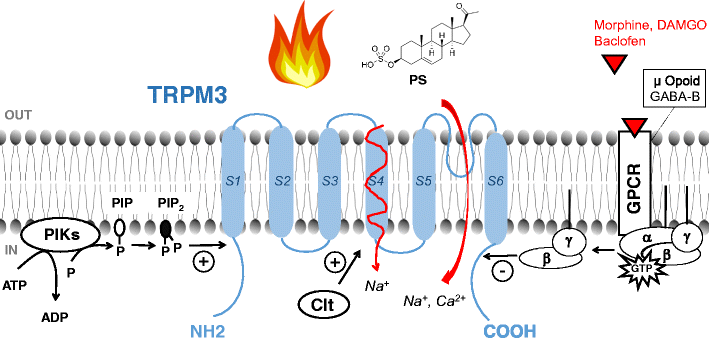Introduction — The Growing Importance of Legal and Ethical Awareness in Healthcare
India’s healthcare system is undergoing rapid transformation, shaped by advancements in technology, evolving patient expectations, and stricter compliance requirements. With rising patient awareness and the proliferation of medical disputes, administrators now face a dual challenge: delivering efficient services while ensuring legal and ethical compliance.
This is where Medical law and ethics in Indian healthcare form the foundation of responsible administration. Doctors, hospital managers, and policy leaders must recognize that their decisions carry both legal and moral consequences. Education and structured training in these areas are becoming essential tools for effective healthcare leadership. Programs offered by platforms like Medipreneur are designed to equip professionals with these critical skills.
What Is Healthcare Administration and Why Legal Frameworks Matter
Healthcare administration refers to the management and oversight of hospitals, clinics, and health systems. It includes responsibilities such as clinical governance, staff management, financial planning, patient care quality, and compliance with policies.
For administrators, understanding healthcare administration laws in India is non-negotiable. These laws safeguard patient rights, regulate healthcare institutions, and ensure accountability. From patient admission to discharge, every stage of healthcare delivery involves legal implications. Without awareness of these laws, even well-meaning administrators may face penalties or litigation.
Thus, healthcare administration is not just about operational efficiency—it is about running institutions within a defined legal framework that guarantees fairness and transparency.
Understanding the Role of Medical Law and Ethics in Indian Healthcare
Medical law and medical ethics, while interconnected, address different dimensions of healthcare.
- Medical law governs professional conduct through statutory regulations, licensing, and judicial interpretations. It covers duties like informed consent, patient safety, and liability in negligence cases.
- Medical ethics defines the moral responsibilities guiding practitioners and administrators, such as confidentiality, fairness, and respect for patient dignity.
Together, Medical law and ethics in Indian healthcare form the guiding pillars of responsible governance. They ensure that healthcare is not only legally compliant but also compassionate and patient-centric. For administrators, this dual framework provides a balanced approach to decision-making.
Role of Medical Ethics in Healthcare Administration
Ethical considerations shape every aspect of hospital governance. The role of medical ethics in healthcare administration extends beyond clinical decisions—it encompasses leadership, policy formulation, and staff management.
Examples include:
- Patient Data Handling: Ensuring confidentiality and secure storage of sensitive records.
- Billing Practices: Transparency in charges to maintain trust.
- Staff Conduct: Enforcing codes of professionalism and accountability.
Ethical frameworks draw from guidelines established by organizations such as the Indian Medical Association (IMA), World Health Organization (WHO), and Medical Council of India (MCI). When administrators prioritize ethics, they create an environment where fairness, integrity, and patient welfare remain paramount.
Key Healthcare Administration Laws in India Every Professional Should Know
Several healthcare administration laws in India directly impact hospitals and clinics. Among the most significant are:
- Consumer Protection Act, 2019: Brings medical services under the ambit of consumer rights, allowing patients to seek compensation for negligence.
- Clinical Establishments Act, 2010: Standardizes regulations for healthcare institutions regarding infrastructure, registration, and patient care quality.
- Biomedical Waste Management Rules: Mandates safe disposal of medical waste to protect public health and the environment.
- Mental Healthcare Act, 2017: Recognizes mental health as a fundamental right and lays down guidelines for patient treatment and consent.
- Right to Information Act (RTI): In certain contexts, ensures transparency in public healthcare services.
These healthcare administration laws in India ensure that institutions function responsibly while upholding patient rights. Administrators who master these laws can prevent disputes and enhance patient trust.
Ethical and Legal Challenges in Modern Healthcare Administration
Today’s administrators face unique challenges where law and ethics intersect:
- Patient Data Privacy: Growing digitalization increases the risk of breaches.
- Informed Consent: Ensuring patients understand risks before procedures.
- Medical Negligence: Hospitals facing lawsuits due to service lapses.
- Conflict of Interest: Ethical dilemmas in procurement, clinical trials, and billing.
Balancing efficiency with empathy is critical. For example, cost-cutting measures must not compromise patient safety. Cases where hospitals failed to uphold ethical standards have often led to public backlash and legal penalties.
This is why the role of medical ethics in healthcare administration cannot be overstated—it acts as a moral compass guiding decisions that laws alone cannot fully cover.
Integrating Law and Ethics Through Professional Education
Continuous education helps administrators make decisions that are both legally sound and ethically correct. By learning the nuances of medical law and ethics in Indian healthcare, professionals can enhance institutional governance and reduce risks.
Medipreneur provides structured programs tailored for healthcare professionals:
- Free Course: Introduction to Medical Law — Builds foundational awareness.
- Advanced Course: Master in Indian Medical Law — Offers deeper insights into healthcare compliance and administration.
For administrators seeking long-term career growth, gaining expertise in both ethics and law ensures they remain effective leaders in an evolving healthcare system. This blend of knowledge also ensures compliance with healthcare administration laws in India while maintaining compassionate care.
Conclusion — Building a Responsible Healthcare Future
In a rapidly changing landscape, healthcare administration must rest on a foundation of both legal compliance and ethical integrity. Medical law and ethics in Indian healthcare empower administrators to deliver safe, fair, and transparent services while protecting institutions from legal risks.
By embracing structured learning and compliance training, healthcare professionals can ensure that their decisions align with patient welfare, legal frameworks, and professional ethics.
🔗 Start your journey with the free Introduction to Medical Law course.
🔗 Advance your knowledge through the Master’s in Indian Medical Law program and lead with legal and ethical confidence.







